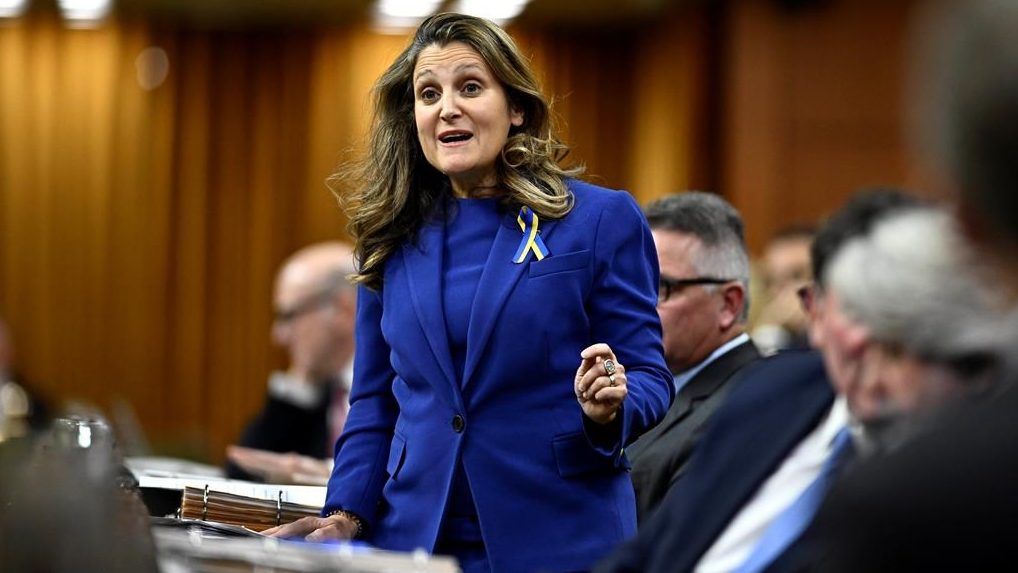AstraZeneca doses ‘not exactly flying off the shelves’ for Ontarians 55-plus, infectious diseases expert says
Posted April 15, 2021 12:14 pm.
Last Updated April 16, 2021 8:53 am.
A key member of Ontario’s Vaccination Task Force is attempting to clear up confusion on why some vaccine doses end up in freezers, saying that the province is struggling to consistently administer AstraZeneca to residents 55 and up.
In a series of tweets posted on social media, infectious diseases expert and member of Ontario’s Vaccination Task Force Dr. Isaac Bogoch says while Ontario continues to receive large quantities of Pfizer and Moderna doses, there appears to be a great deal of hesitancy when it comes to AstraZeneca; which is currently being dolled out at a number of pharmacies provincewide.
“We have infrequent large boluses of AstraZeneca. This is administered by primary care in 6 Public Health Units, and by 1,400 pharmacies throughout the province. It is available to anyone 55 years of age and older,” said Bogoch on Twitter.
“… So what is the deal with so many ‘in the freezer?’ Well at the beginning of the week there is plenty of Pfizer/Moderna but that quickly gets administered. We then wait for the next shipment. There is -2 day supply for wiggle room if there are supply chain issues.”
“BUT… What’s left in the freezer? AstraZeneca. A lot of it. It’s not exactly flying off the shelves for the 55+ crowd, unfortunately,” Bogoch says.
4. On the day of vaccines delivery, for a brief period of time there are a lot of vaccines. Kind of makes sense.
Throughout the week they are quickly administered.
It looks like most of the provinces are comparable in terms of their ratio of delivered:administered @jm_mcgrath pic.twitter.com/2zp5ymMbEt
— Isaac Bogoch (@BogochIsaac) April 15, 2021
He says that even with 1,400 pharmacies and public health units ready to administer the AstraZeneca vaccine, it moves “slowly in many areas.”
“It’s pretty clear why the uptake of AZ [AstraZeneca] is slow. There have been some preventable and perhaps less preventable communication (& policy?) issues at various levels.”
Bogoch is referring to a problematic, ongoing, and seemingly avoidable course of miscommunication and misinformation encompassing blood clots and the AstraZeneca vaccine.
In late March, Canada’s National Advisory Committee on Immunization recommended a pause on AstraZeneca COVID-19 vaccinations for people under 55 due to safety reasons.
In a most recent update, Health Canada said Wednesday that a new and extremely rare blood clotting syndrome may be linked to the AstraZeneca vaccine, but the agency says the benefits of the shot still far outweigh any risks.
This comes after Canada reported its first case of a woman who developed a blood clot after receiving the AstraZeneca vaccine.
RELATED: NACI considering changes to AstraZeneca age recommendations
The agency, and other health experts from around the globe, stress that there is no evidence showing certain people are more at risk than others. The vaccine will remain authorized for all adults in Canada.
According to the new Angus Reid poll, 41 percent of respondents said they would accept the AstraZeneca shot, while 23 percent said they would reject a dose if it was being offered to them.
British researchers said Thursday that there is a much higher risk of brain blood clots from COVID-19 infection than there is from vaccines against the disease.
AstraZeneca and Johnson & Johnson have both seen very rare reports of cerebral venous sinus thrombosis (CVST) linked to their vaccines.
On Wednesday, the U.S. paused vaccinations using J&J’s shot while a link with these side effects was investigated.
“We could probably administer significantly more AstraZeneca vaccine through some combination of 1) transparent & effective communication 2) lowering age cutoff below 55 3) expanding role of primary care 4) other/etc.,” said Bogoch in a follow-up tweet.
“There are several of areas for improvement on the vaccine rollout, like improving access in high-burden neighbourhoods, sorting out confusing sign-up systems, communicating ever-changing guidance, lowering barriers, etc.”
“… BUT having said all that, Ontario is administering >100000 vaccines on most days. While I am grateful for the increased supply of Pfizer & Moderna (this really kicked in on March 22nd), we truly don’t have enough to vaccinate everyone in Phase 2 now, and still have to triage,” Bogoch added.
11. Ontario is administering >100000 vaccines on most days.
While I am grateful for the increased supply of Pfizer & Moderna (this really kicked in on March 22nd), we truly don't have enough to vaccinate everyone is Phase 2 now, and still have to triage. pic.twitter.com/9S6Dm2ssqW
— Isaac Bogoch (@BogochIsaac) April 15, 2021
On Wednesday, Toronto’s medical officer of health tried to quell these vaccine concerns by telling city and provincial residents not to believe everything they read on social media about the risks of COVID-19 treatments.
Dr. Eileen de Villa says the risk of blood clots with the Johnson & Johnson vaccine is one-in-one-million.
“I want to reassure you, news about the vaccines emerges frequently,” she said.
“There is a lot of information available on the internet and some very unqualified vaccine skeptics sowing fear and misinformation through social media.”
Health Canada approved AstraZeneca on February 26th and J&J on March 5th, but only AstraZeneca has been used in Canada so far.










